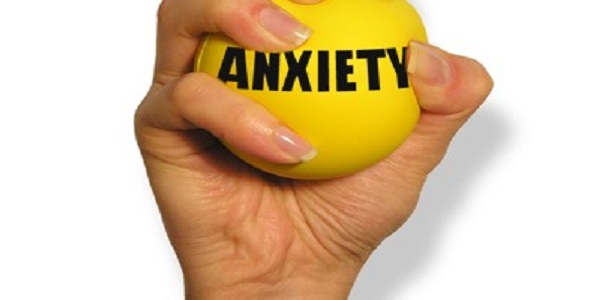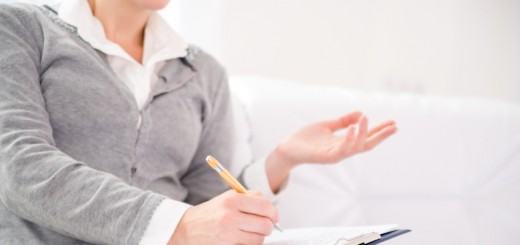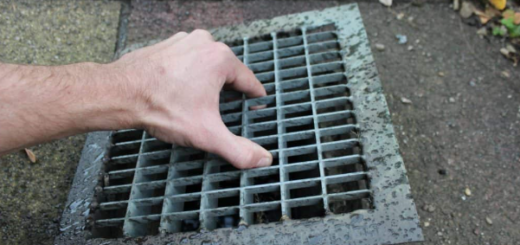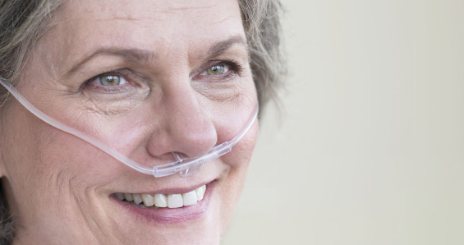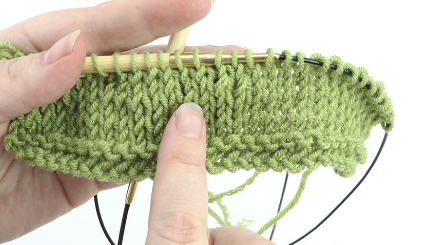Techniques to Reduce Anxiety
What is anxiety?
Anxiety is an emotional state where people feel restless, anxious and fearful. Affected individuals experience fear in situations they cannot control or predictor situations that seem threatening or dangerous. It is a constant state of despair in which no live or enjoy the present moment, always thinking about the activity that you have later.
Anxiety can be normal in the presence of threatening stimuli or involving risk or pathological challenge … that characterizes different mental disorders. Uncontrolled or persistent anxiety over a period of six months or more is classified as a disorder.
Symptoms
It may present with different symptoms such as:
- Pounding in the chest
• Chest pains
• Dizziness or vertigo
• Nausea or stomach problems
• Hot flashes or chills
• Shortness of breath or a feeling of suffocation
• Tingling or numbness
• Tremors or shaking
• Feelings of unreality
• Terror
• the feeling of lack of control
• Feeling become like crazy
• Fear of dying
• Excessive sweating
• The most common anxiety disorders are social phobia, obsessive-compulsive disorder, posttraumatic stress disorder, and generalized anxiety disorder.
Techniques to lower the general level of anxiety
Exercise
Proper exercise helps us to muscle toning, avoiding both stiffness and excess activation of the nervous system, promoting a healthy tiredness that promotes restful sleep and calm excess thoughts and ruminations.
If our physical condition is unfortunate (we have symptoms such as lightheadedness, dizziness, nausea) and we cannot tolerate intense exercise, you can choose to split it into small pieces throughout the day and from a very gentle pace to win a sufficient welfare greater efforts to address substance.
It is preferable to practice a fun sport that we like and we enjoyed it in the past, and which incidentally will provide us greater satisfaction than the cold and heavy gymnastics.
Sleeping and eating habits
Overexertion involved a disorderly life weighs itself as stressful on the overall result of excessive anxiety factor.
Not a few people have become accustomed to a chaotic food and some sleep schedules too tight or irregular, so while their strength permits seem at first glance have no negative consequences (by the way, is the same argument that leads to start smoking, because it seems, in the early years, the habit is not damaged or discomfort of smokers veterans complaints).
Regular sleep, so that it is sufficient and that the body finds a relief to be adapted to a systematic routine, you can help reduce stress.
A varied and not very heavy food helps control many gastric symptoms that are favored in state anxiety (diarrhea, constipation, gas, upset stomach, etc.). Many people detect the degree of anxiety about the sensations produced them in the stomach, sometimes by feelings of morning sickness: a one and the other does not suit them complicated by inadequate nutrition.
A high degree of anxiety influences the timing of sleep is more difficult because they appear in the mind bursts, reveal thoughts or we are dedicated to touching when we rest, tired soul-heavy and arduous preparations for the next day. The result is that steal time from sleep because our state is too fragile to withstand these provocations.
It would be advisable that while we cannot recover capacity fast asleep us help ourselves by choosing a different time for reflection and planning the day to leave the next morning. In return, we will relax thinking nice things or reading an article of those that induce sleep. If you are over 15 moving between the sheets, unable to sleep, instead of making us bad blood, it is preferable to get up and continue reading the heavy article or watching a boring TV show until we notice that the eyelids weigh us down and then back to the bed.
The anxious person can easily torture by the fact that if you have trouble falling asleep will be difficult to clear the next day and is tormented by the idea that the time of awakening approaches. It is better in this circumstance to consider that if you have to sleep a few hours is better to accept that not because of endeavor, protest or complain sleep even less. Neither their status the next day will not be thinking so pitiful-unless obsess with the process fatefully – repeat that in the days following your own body will struggle to recover.
The same anticipation or fear that just cannot sleep well because we sleep badly. Remember you sleep is a passive thing, not something we do putting much effort of will and provoke with the whip of the phrase “I have to sleep! ”, Therefore the method for sleep to come, without panic seeing the big picture of how we hope, it is to do nothing, not even thinking about it, just living the day (so do not ask us unrest last minute consolation), and finish off the evening with neutral activities (not too exciting or too ugly).
Deceleration
In a situation of stress, a certain reduction of our aspirations is imposed. We cannot force the pace to fit more things in the same period of time, and must be selected according to criteria of relevance, trying to delegate or defer the rest.
Even if we decrease the amount can be so fast to go with the same speed rush and when we WORRY, leaving gaps of sudden inactivity that devours a scene and the unseen food is in the plane and spends the rest of the Food nervous waiting for the others to finish. Slow means slowing our movements forcing a “walking speed, ” wallow betting with perfection and polish what we have at hand (for example, write very good lyrics, select words, phrases expanding and entering details considerations, review creative work or introduce small improvements).
Feelings of emptiness there to fill them with something that will help us not unhinged address this intolerable fissure, attending carefully to his surroundings watching us well to Sherlock Holmes where I am, as is the person I’m playing to create something fun, entertaining and relaxed to provide enjoyment while passing and passing and becomes a living.
Planning activities
Wisdom and cunning when planning our activities are another convenient tools to lower tensions, knowing collate appropriate breaks to relieve anxiety growing or changing the type of task to a softer or bearable, to regain good mood and face the harshness of the day with plenty of energy always rather feeble.
We must not forget that at the end of the day we are to satisfy different needs and not neglect them is a way to harmonize, spending time with friends, to our readings, music, and personal pleasures, having moments of emotional contact. Being different selves that we are, we review and strengthen the skeleton and the frame that holds us.
Drug Help
If symptoms of anxiety or the consequences reported in psychosomatic disorders (those where stress is a risk factor, triggering or aggravating) are too unpleasant or disabling, can turn to a pharmacological aid.
Sedatives and anxiolytic can be helpful, especially if we give them a modest supporting role, putting our interest and determination to change bad habits, eliminate the causes of anxiety and learn to improve our emotional control.
It is considered inadequate and dangerous tranquilizers like a drug that gives relief to keep doing what we were doing, but without unpleasant consequences (something like if someone asked the doctor a medicine for stomach pain to continue giving binges whim).
Relaxation techniques
Relaxation exercises, breathing, and yoga is as powerful as a drug but more laborious. It may be a good investment to learn the techniques that will be useful not only to face the present but to help us take care of the burdens that the future brings.
Manual Activities
Manual activities are very convenient for people with intellectual anxieties and concerns. Artistic and DIY hobbies do contact us with simple objects and sweeten us, let’s sink our roots doing in reality. The enjoy nature has a similar beneficial effect.
People whose stress has a physical origin (unstoppable bustle, children fluttering, heavy physical exertion, stultifying mechanical operations, etc.) interests them rather the opposite, leaving parked the body and the spirit to work with things that stimulate intelligence (not that stun such as laying on the couch and watch TV for hours), as it could be a learning (languages, computers, course) or an associative activity (AMPA, neighborhood, NGOs, etc.) or playful.
Sexuality
If you have a couple should devote attention and use it, as we have, trying to cultivate mutual attraction. Satisfactory sex (to prevent them becoming demanding, compulsive or routine) has a very beneficial effect to ward off accumulated tensions. It may be a good time to improve communication and the art of loving.
Social activity
Increase social life, network, participate in discussions, informal meetings and cultivate friendship, positive and laudable ideas themselves and must not be left thinking that the “retirement ” and isolation reassured us (the idea of the spa in a remote mountain).
There is indeed a form of relaxation that is simplified (lie not see anybody, do nothing, stunned with things that do not complicate our lives) and there is another form of relaxation that comes from satisfaction and morale, Had we bothered to do something with some quality, having an interest in others and the outside world (the idea that the world around us is a spa).
Particularly in the bond, it should calm down with the affective, vitalizing contact with the people around us, from the neighbor to our partner or family.
Coping self-statements (Top)
The various situations in which you are usually the last to look at one or more important ways. The feelings and thoughts triggered by a particular situation are the results of conscious or unconscious interpretation of the situation. This process of interpretation is generally based on patterns of automatic, habitual thought. The key to changing this habit pattern learned is the fact that thoughts are really silent phrases you say.
Since emotions are partially controlled by their interpretation of the situation, claims that calm and reassuring when you feel scared or anxious also help you reinterpret the situation; therefore, they are not as alarming. Such statements are called coping self-statements because you say them and they help you succeed in a particular situation effectively.
Consider the latter situation that was in this situation of anxiety produced. If you think about it for a moment, probably you find that the ideas or claims that are repeated are the same as is said in similar situations. Moreover, it is likely to be statements that increase your anxiety level. It is as if a tape recorder automatically issued its particular set of negative statements over and over in his head. Common examples of this type of negative auto speeches include the following statements:
“This is terrible.”
“I cannot breathe.”
“I am dying.”
“I cannot handle this.”
“Why is this happening?”
“I cannot stand this.”
“I’ll never get better.”
“I cannot do it”
Each of the above statements is either false or expresses an irrational fear. Remember, your symptoms started when you experienced unpleasant symptoms and lies about what they meant were said. They are supported by a combination of anxiety, internalization (constantly watching his body), negative anticipation and pattern of the negative habit of telling lies about what they mean bodily sensations warning.
Decreasing the amount and intensity of such negative auto speeches is one of the keys to reducing anxiety. One way to do this is to repeat coping self-statements whenever you come to feel tense or anxious. At first, this may have only a minimal effect; however, in practice, it creates a series of positive messages that replace the old negative messages.
Use coping self-statements such as the following example to challenge their fears, help yourself to stay focused on the task at hand, remember to use their skills to reduce anxiety and focus on the problem rather than the symptoms or inadequacies.
“Anxiety is not dangerous, ONLY is uncomfortable. SURVIVED I HAVE A FEELING LIKE THIS BEFORE AND WORST.”
“I BE ANXIOUS AND FOLLOW working effectively; REMAIN FOCUSED ON IMMEDIATE TASK.”
“NO NEED TO FIGHT what I’m feeling. Even when it is troublesome, is just adrenaline and will pass”.
“No Negative self-talk. I have to stay focused on POSITIVE THOUGHTS, rational and realistic.
Now make a few BREATHS diaphragmatic you RELAXED, and I will continue. ”
Since their thinking is so automatic when anxious, often difficult to think of effective coping self-statements. The best way to overcome this problem is to prepare several statements and write them on a card or piece of paper. It is important that their claims have power and meaning for you.
After you have developed your list, practice until you can recite affirmations memory recall without much effort. Then, when you are in one of these situations, use a small part of your mind to repeat coping self-statements while the rest of your mind stays focused on what you are doing. Check periodically helps claims that do not yet become outdated. Finally, it was found using coping self-statements before spontaneously.
Distraction (renewal)
Distraction is the process of moving or diverts their attention from one activity to another and sometimes called renewal. Distraction employs an important principle: move your attention to something neutral or positive is always easier than moving it to him away from something negative. Try to reduce anxiety thinking or saying phrases such as: “Do not be anxious” or “I should not be anxious” rarely works.
It said that the process should not be anxious focuses its attention and energy on their anxiety and, in general, makes this increase. The five forms of outsourcing described in this section provide a more effective way to reduce anxiety to redirect their attention her away from anxiety to a neutral or positive activity.
An important feature of most forms of distraction is outsourcing. Outsourcing is the act of focusing your attention on sensations that originate outside the body. Distract attention away your body and focus on the external avoids initial alarm reaction that activates the anxiety / panic cycle. Use distraction after the cycle has been activated it helps calm interrupting the negative self-talk and break the cycle of fear for the self-generated symptoms.
OUTSOURCING SIMPLE
The simple outsourcing is the use of one or more senses to focus on some external sense.
- Observe carefully: Read signs; viewing the design of a wall, fabric or carpet nearby; observe the intricate activities of people around you or the surrounding environment.
• Listen carefully: Listen to fortuitous conversation or background noise such as the ticking of a clock.
• Feel the textures: Feel the texture of the fabric, paper, gum wrapper or steering wheel of the car you are driving.
• Taste or smell: Taste and smell the gum or candy in his mouth, pay attention to the different smells around you.
• Conduct repetitive activities: Counting tiles drum a finger rhythmically, wraps a piece of paper in a systematic way.
Simple tasks that require concentration:
Simple mental activities that require concentration, such as remembering the lyrics of a song, to determine the total cost of a purchase, schedule an event like a trip to a friend’s house, or remember an event that arouses positive emotions such as happiness, contentment or joy.
Conversation
Conversation is an effective form of distraction that can be used almost anywhere. The conversation works best as distracting as he is an active rather than a passive listener conversationalist. It is also better if the topic of conversation not related to their anxiety symptoms or situation that generates anxiety.
Job
Mental or physical work is a good distracter, is best when it is interesting, pleasant or involves competition.
Game
The game has everything that is both interesting and enjoyable time. Crossword, entertain with games, dancing and deal with hobbies are examples of game the that can be used for escape. The activities that require physical activity usually more distract than games which remains passive. The key element is that the activity will attract your interest.
Reducing Stress
- Take regular breaks.
- Drink 6 to 8 glasses of water a day: two in the morning, two after dinner, and two after dinner.
- Reduce consumption of coffee, tea, or other stimulants.
- Go for a walk outdoors.
- Value yourself and others.
- Having a courageous spirit.
- Occasionally sit comfortable, close your eyes for a minute or so.
- Find a quiet and calm place where you can go every day to be over a certain time.
- Eating a balanced diet.
- Take vacations. Frequent and short holidays are better than a long vacation.
- Want good things to people you meet.
- Exercising, at least, three times a week.
- Sleeping 7-8 hours a night.
- Laughing … Do not take things too seriously.
- Having a hobby. Do something you enjoy, apart from work.
- Face difficulties. Know your priorities. Take steps to change or resolve what is desired. Do not worry about the rest.
- Seek help or advice from those people that you trust.
- Strive to think and act likes the person that you’d like to be. The thoughts and attitudes direct the action, and the action directs the thoughts and attitudes.
- Manage our anger, anger and frustration. Take responsibility for our feelings. Allow our anger to cool and then express it properly, assertively: considering our needs and those of the other.
- Allow delight in pleasant thoughts.
- Be grateful to the people;
- Be prepared to allow and accept the unexpected.
- Treat people with the same consideration we want to be treated.
- Realize when muscles are tense and immediately do relaxation exercises. Also, ask why are tense.
- Created a certain routine. Introduce some regularity in our lives: time given for meals, religious practices, recreational reading …
- Make a realistic list of the tasks we perform each day. Try not to overindulge.
- Worry that our life has a certain range with respect to people, places, thoughts.
- Learning to say “NO”.
- Give up smoking.
- In the dialog, giving an option to the people run out of phrases. Do not throw them in a hurry.
- Maintain regular contact with friends and family.
- Driving without exceeding the speed limit. Stop the car when the light is amber.
- Regularly practice foot massage, neck, face.
- Reduce alcohol consumption.



